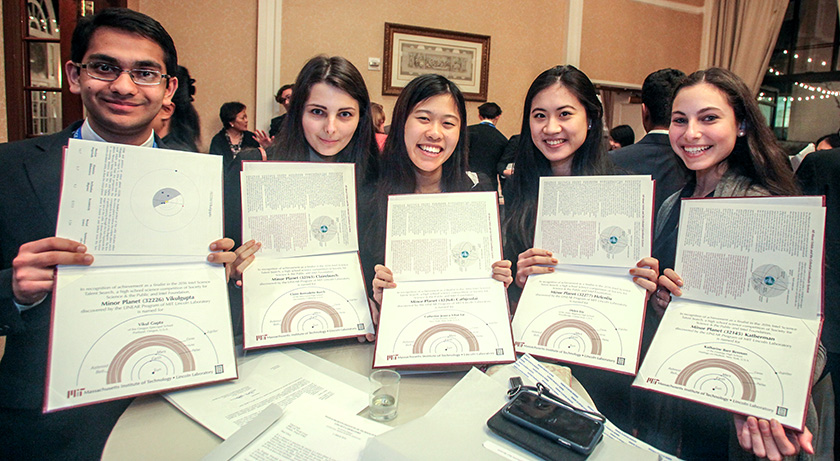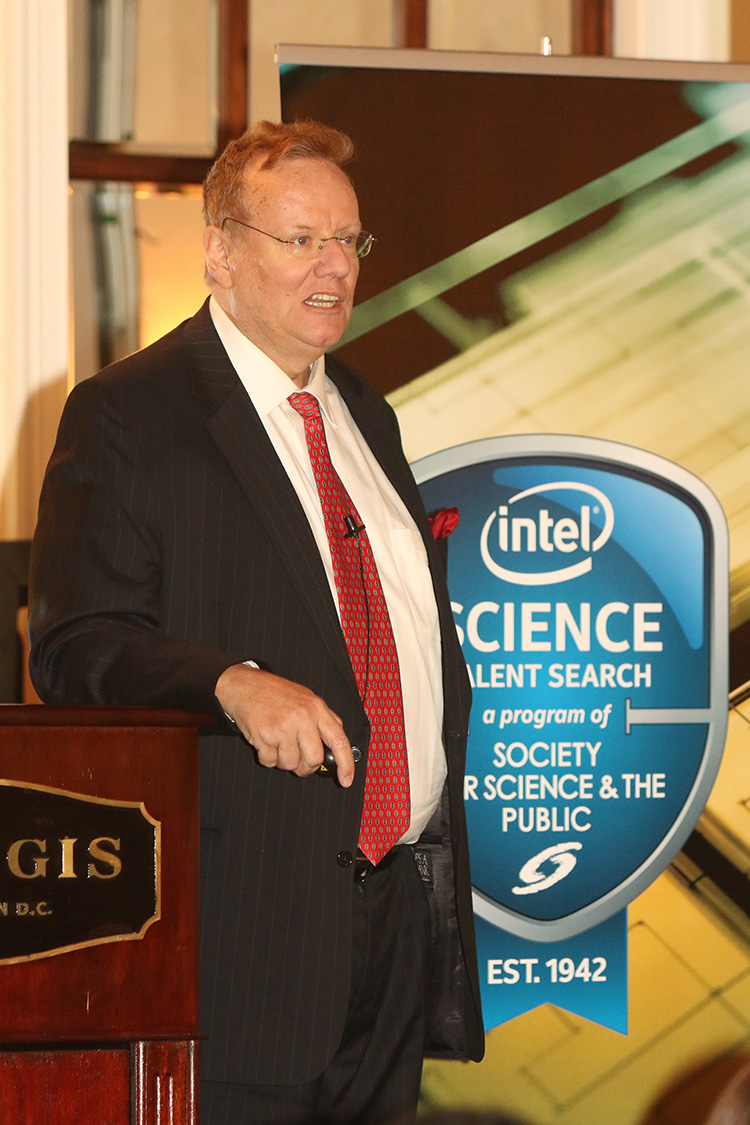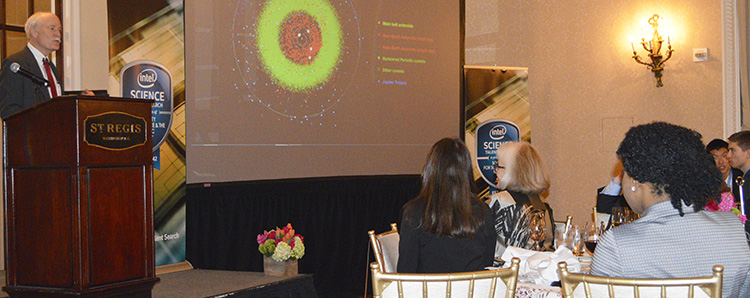Former White House health advisor offers Intel STS finalists advice

Steven Eastaugh’s 1970 Westinghouse Science Talent Search (STS) class had far fewer female finalists than 2016, which was the first year to have more female than male finalists. “I’m proud this year is the first year there are more women than men [finalists],” said Eastaugh, who was this year’s Science Talent Institute Alumni Speaker on March 10.
Steven, the former health policy advisor to President Barack Obama, offered important advice to the finalists. “You are the future,” he said. “And you’re going to make a better future for all of us.”
Steven called himself a Sputnik baby, which is how he became interested in science and medicine. He has had a long career in public policy and healthcare, at one point working in a cubicle next to Carl Sagan.

“Be flexible,” he told the finalists. “You don’t have to think that you know what you’ll do at 17. Life is unpredictable.”
After helping a fellow STS 1970 finalist avoid being arrested for sitting on the lap of Abraham Lincoln’s statue, Steven discovered instead of strict science, he might have a knack for public policy and diplomacy.
Steven encouraged the finalists to constantly push their boundaries and the boundaries of knowledge. Don’t be afraid to approach decision makers and tell them about the way policies should go, he said. The finalists should think big and consider how to create system-wide change.
“Create your own path,” he said. Instead of settling in a job, perhaps the finalists should create their own career or company. If finalists begin to feel stifled in a job, Steven encouraged them to “get a new job… Life is too short. Don’t sit around with people who will hold you down. Take risks.”
Steven took risks during the summers he worked in labs. For several summers, he studied astrophysics. One summer, he switched to nuclear physics. “I could have stayed in one subject, but I drifted,” he said.
While the finalists are working on their careers, they should also teach others about science and give back, he said.
Steven also viewed bias and certainty as enemies of science. He believes Intel STS alumni should be involved in educating leaders and the public. “We can’t just try to educate the public and hope it trickles down to politicians,” he said.
Maya Ajmera, the President & CEO of the Society and publisher of Science News asked finalists to raise their hands if they also participated in Broadcom MASTERS or Intel ISEF competitions. Broadcom MASTERS is a middle school competition and the Intel International Science and Engineering Fair is an international high school competition, both owned and run by the Society.
Several Intel STS 2016 finalists participated in two competitions, or all three. “We have trifectas going on, which is very cool,” she said.
Steven fondly remembered STS as a great place where he met “fellow nerds like me.” Every time he meets STS finalists, he’s “just amazed,” he said. “It gives my heart pause that we have the future in good hands.”

After Steven’s speech, Dr. Grant Stokes, a 1977 STS finalist and 1976 ISEF finalist, announced that the Intel STS 2016 finalists will have a minor planet named after them.
“This is the biggest piece of real estate you’re ever going to own,” he said.
There was an audible gasp among the finalists when they learned the news.
Beverly Ge, from Florida, said her dad is an astronomy professor. “He searches for Earth-like planets,” she said. “I often joked that he should name one after me — now I have one!”
Read about an Intel STS finalist who hunts exoplanets in the center of our galaxy.


